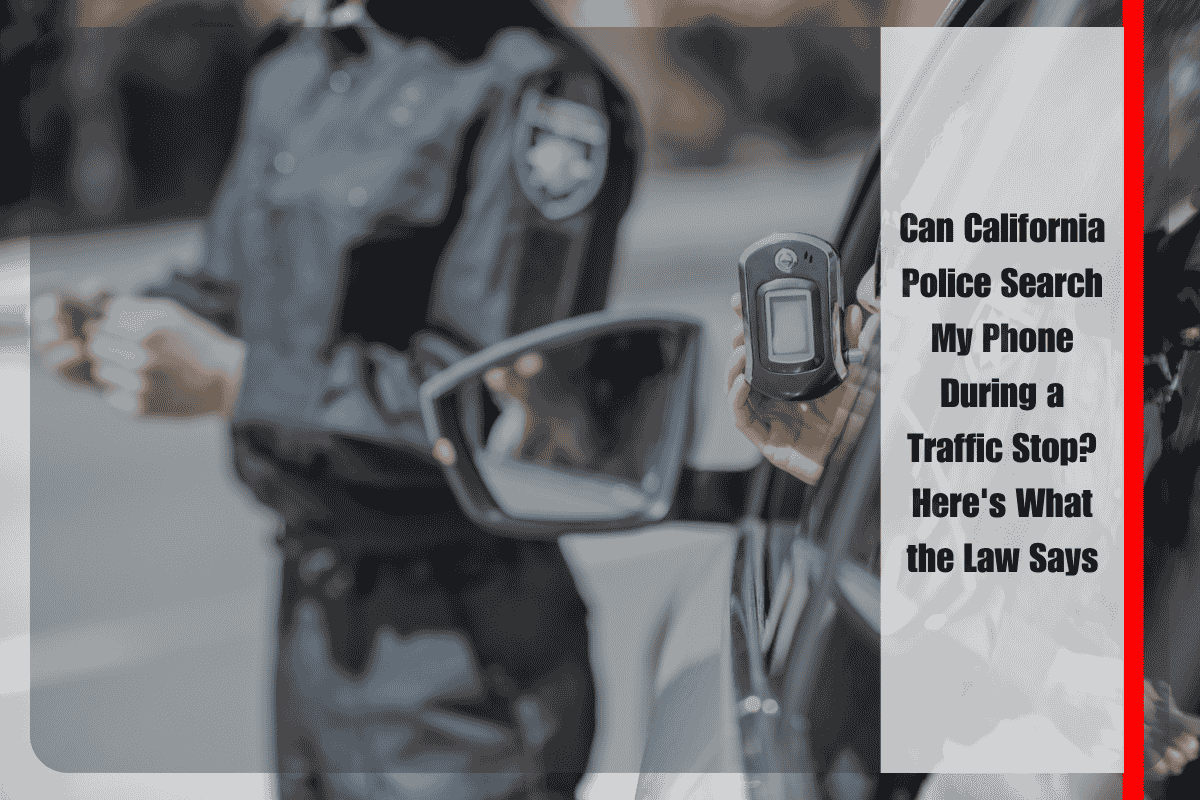During a traffic stop in California, the law provides strong protections against police searching your phone without your consent or a warrant. The foundation of this protection comes from both the U.S. Constitution and specific Supreme Court rulings, most notably the 2014 case Riley v. California.
The Fourth Amendment to the U.S. Constitution protects individuals from unreasonable searches and seizures. This means that, as a general rule, police must obtain a warrant before searching your property, including your cell phone, unless there is a recognized exception to the warrant requirement. The Supreme Court’s unanimous decision in Riley v. California clarified that the vast amount of personal information stored on modern cell phones means they are fundamentally different from other personal items, such as wallets or bags, and therefore warrant greater privacy protections. The Court ruled that police generally need a warrant to search the data on a cell phone, even if the phone is seized during an arrest.
During a routine traffic stop, California law does not allow police to automatically search your phone. Even if you are arrested for a traffic violation or another offense, police cannot lawfully scroll through your messages, photos, or apps without a warrant or your consent. There are, however, a few exceptions to this rule. Police may search your phone without a warrant if you voluntarily consent to the search. Consent must be given freely and without coercion; you have the right to refuse, and you should clearly state that you do not consent if you wish to preserve your legal protections. If you consent, police can look through your phone and any evidence found may be used against you in court.
Another exception is the existence of exigent circumstances. These are emergency situations where police believe immediate action is necessary to prevent imminent harm to someone, the destruction of evidence, or the escape of a suspect. For example, if police have credible information that you are planning an imminent attack and your phone contains details about the plan, they may search your phone without a warrant. However, courts scrutinize claims of exigent circumstances closely, and this exception is rarely applied during routine traffic stops.
If you are on parole or probation, your privacy rights may be more limited. In many cases, the terms of parole or probation allow law enforcement to conduct warrantless searches of your property, including your phone. However, for the general public, these conditions do not apply.
It is important to note that police may seize your phone during a traffic stop if they have reasonable suspicion or probable cause to believe it contains evidence of a crime. However, they generally cannot search the contents of the phone until they obtain a warrant. The warrant must specifically describe the phone to be searched and the evidence police are seeking. If police search your phone without a valid warrant or without a recognized exception, any evidence obtained may be suppressed in court under the exclusionary rule.
During a traffic stop in California, police cannot automatically search your phone. They must either obtain a warrant, receive your consent, or demonstrate the existence of exigent circumstances. The law is designed to balance legitimate law enforcement needs with the privacy rights of individuals, reflecting the unique nature of digital information in the modern age.
Sources
[1] https://www.ebsco.com/research-starters/law/riley-v-california
[2] https://www.govtech.com/public-safety/can-police-search-your-phone-during-a-traffic-stop
[3] https://criminaldefenselawventura.com/criminal-defense/are-police-allowed-to-search-your-phone-in-california/
[4] https://epic.org/documents/riley-v-california-2/
[5] https://www.egattorneys.com/cellphone-searches-in-california












